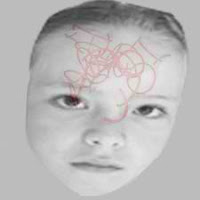ASD and Impaired Humor Comprehension
 Research has shown that people with ASD (high functioning autism) are impaired in humor appreciation, although anecdotal and parental reports provide some evidence to the contrary.
Research has shown that people with ASD (high functioning autism) are impaired in humor appreciation, although anecdotal and parental reports provide some evidence to the contrary.
Flexible thinking is vital in comprehending jokes. Punch-lines in jokes are funny mostly because they are unexpected. In addition, big picture thinking is needed in understanding jokes, as it allows the listener to discern how the surprising punch line fits together with the joke body.
As people on the spectrum often demonstrate rigid thinking, a desire for the preservation of sameness, and difficulties with big picture thinking, it seems that they have trouble perceiving and producing “normal” humor.
Research suggests that they produce and perceive humor in ways that are different from their same-age peers. They tended to prefer jokes with straightforward endings more than did peers in the control group, and their humor production was often less organized. However, research also suggests that boys with ASD both want to laugh – and to make others laugh. Thus, rather than calling this finding “impaired humor appreciation,” a better term might be “humor nonconformity.”
The ability to engage in social interaction is not one skill, but a set of skills that includes facility with language, interpreting nuances, reading facial expressions, regulating emotions, and understanding the possible motives and wishes of others. While people on the spectrum typically have average to well above average verbal cognitive abilities, they often have difficulty using language in ways that connect them to others.
Research asserts the importance of humor in developing and maintaining relationships. It has been shown to reduce social uncertainty and anxiety, increase intimacy, and allow for the safe expression of delicate issues (e.g., sexual interest).
Since “normal” humor (i.e., humor that facilitates relationships) plays such a vital role in relationships, the possibility of humor-related “abnormalities” would help explain some of the social difficulties seen with Aspies.
The difficulty of a person with ASD having an “abnormal” sense of humor is that he is less likely to draw others to himself through this “social tool.” This is especially true during adolescence, when peers ostracize those who are different. Difficulties understanding humor can create a feeling of isolation in Aspies when they are surrounded by laughing peers who got the joke.
Also, they may become ideal targets for “emotional bullying’ (e.g., without understanding the sarcasm in a put-down, people with ASD are not likely to fight back). With decreased ability to make others laugh, autistic teens have less access to a powerful medium for facilitating relationships.
The awareness of these issues has implications for possible intervention. Parents can coach their child on elements of humor. Humor skills can be explicitly taught with some success. By giving them these skills, they are given a more equal chance with regard to social interaction.
More resources for parents of children and teens with Asperger's and High-Functioning Autism:
==> Preventing Meltdowns and Tantrums
==> Discipline for Defiant ASD Teens
==> Teaching Social Skills and Emotion Management
==> Launching Adult Children with ASD: How to Promote Self-Reliance
==> Everything You'll Ever Need to Know About Parenting Asperger's Children
==> Parenting Children and Teens with High-Functioning Autism
==> AudioBook: Unraveling The Mystery Behind Asperger’s and High-Functioning Autism


